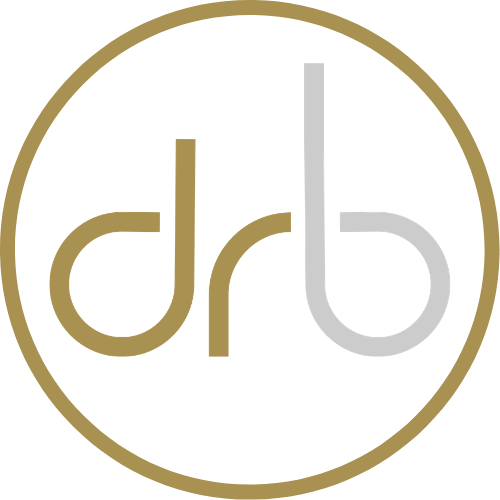What Does A Life Coach Do
Are you doing what matters?

What Does A Life Coach Do
When it comes to life coaching services, they are like the Swiss Army knife of personal development - equipped with a diverse set of tools to assist individuals in navigating the complexities of life.
From setting and achieving goals to overcoming obstacles and fostering personal growth, a life coach offers a unique blend of support and accountability.
But what sets them apart is their client-centered approach, drawing on positive psychology techniques and honed communication skills.
So, what does a life coach do and how exactly do they help individuals unlock their full potential and achieve their aspirations?
Role Of A Life Coach
So, what is a life coach and what do they really do? Life coaches help people set and achieve personal and professional goals. We coach people from all backgrounds to improve their lives. Our coaching experience allows us to understand individual challenges and tailor our approach to their needs. We can help people reach their personal and professional goals by creating a supportive and collaborative environment.
Coaching is about helping people find their own solutions, not just giving advice. Active listening and thought-provoking questions help people clarify their goals. Our coaching sessions aim to inspire and motivate people to pursue their dreams.
We help people develop the skills and mindset to overcome obstacles and challenges beyond setting goals. Sharing our knowledge and expertise can help people grow and fulfill their goals. Coaching can change lives and create lasting, positive change.
Types Of Coaching Services

Let's explore personal and professional development coaching services and if it is a good investment for yourself. Coaching services vary to meet client needs. Life coaches help people achieve goals, improve relationships, and improve their overall well-being.
Career coaching also helps people advance professionally. Career coaches help clients succeed in their field by navigating career transitions, improving leadership skills, and improving job performance.
Health and wellness coaching is another valuable service that improves clients' physical and mental health. Health coaches motivate people to set and achieve fitness goals, manage stress, and improve their health. Look for life coaches around to get professional help and know how much does it
cost to avail of their life coaching services.
Goal Setting And Achievement
Goal-setting, achievement, and exploring our dreams are crucial to our personal and professional growth. As life coaches, we know that setting clear, actionable goals leads to success and fulfillment. By helping clients set goals, break them down into manageable steps, and provide ongoing support and accountability, we empower them to achieve their dreams.
Goal setting is more than just making a list of wishes; it's about creating a plan to achieve them. Life coaches help people define their goals, identify obstacles, and devise solutions. Clients' mindset, behavior, and approach to success change dramatically during this process.
Success requires hard work, strategic planning, and unwavering dedication. Life coaches advise, inspire, and equip people for success with their unique perspective and tools. Our culture of accountability and continuous growth helps our clients reach their full potential and celebrate their successes. Life coaches can help set goals and create feasible plans to achieve them. That's why it is
never a waste of money to hire a life coach. Goal-setting drives meaningful change and lasting success as we journey toward personal and professional fulfillment.
Overcoming Obstacles

Managing challenges is essential to personal growth. Life coaches know progress always involves challenges. Here are three innovative ways to overcome challenges and keep moving forward:
- Embrace Resilience: When faced with obstacles, it's crucial to cultivate resilience. By viewing setbacks as opportunities for growth rather than roadblocks, we can identify the lessons to be learned and emerge stronger. Embracing resilience allows us to bounce back from challenges with a newfound sense of determination.
- Harness Creativity: Innovation often arises from adversity. By tapping into our creative resources, we can discover novel solutions to overcome obstacles. Thinking outside the box and exploring unconventional approaches can lead to breakthroughs that propel us forward on our journey.
- Seek Support: Progress isn't a solitary endeavor. In times of challenge, reaching out for support can provide valuable perspectives and encouragement. Whether it's seeking guidance from a life coach, confiding in a mentor, or leaning on friends and family, building a support network can help us navigate obstacles with greater clarity and confidence.
Personal Growth Strategies
Unlocking personal growth requires continuous self-improvement. This is part of their responsibilities and what does a life coach do. Life coaches specialize in helping people develop personal growth strategies. Our coaching empowers people to set goals, overcome obstacles, and maximize potential.
Helping people set SMART goals is one of our main methods. By helping clients set goals, we help them focus and track their progress. We also stress the importance of a growth mindset, viewing challenges as opportunities to learn and grow.
Our coaching sessions use powerful questioning to encourage self-reflection and insight. We help people understand themselves, their values, and their goals by asking thought-provoking questions. Through this process, clients can identify areas for improvement and take personal growth steps.
We help people create customized action plans based on their needs and goals. These action plans provide a roadmap for personal growth with specific tasks, milestones, and deadlines. Guidance, accountability, and encouragement help people stay motivated and committed to growth.
Support And Accountability

Moving forward, life coaches must support and hold clients accountable to achieve their personal growth goals. As we work closely with our clients, we know that unwavering support and accountability drive progress. Here are three key ways we approach support and accountability:
- Empathetic Guidance: We understand that personal growth can be challenging, which is why we offer empathetic support to our clients. By truly listening to their needs and concerns, we can provide guidance that's tailored to their unique circumstances. This personalized approach helps our clients feel understood and motivated to work towards their goals.
- Goal Setting and Monitoring: We assist our clients in setting specific, achievable goals and regularly monitor their progress. This process allows us to hold our clients accountable for the actions they need to take to move forward. By establishing clear milestones and celebrating successes along the way, we keep our clients motivated and focused on their personal development journey.
- Continuous Feedback: We believe in the power of constructive feedback to help our clients grow. By providing regular feedback on their actions and mindset, we help them gain valuable insights and make necessary adjustments. This ongoing feedback loop ensures that our clients are constantly improving and staying committed to the hard work required for personal growth.
Communication And Listening Skills
How can life coaches improve client relationships with good communication and listening?
Life coaches help clients achieve their goals through communication. Life coaches can create a safe, open space where clients feel heard, understood, and supported by improving their communication skills. Life coaches can build strong relationships through clear, empathetic communication.
This dynamic also requires active listening. Life coaches can identify hidden emotions, issues, and cues by actively listening to their clients. This lets the life coach dig deeper into the client's needs and goals for more targeted and effective guidance.
When a life coach uses strong communication and active listening skills, the client's life can change dramatically. Clients feel empowered, valued, and motivated to achieve their goals. The life coach-client relationship becomes a trusting, collaborative partnership that fosters growth and transformation. Life coaches need good communication and active listening to maximize the coaching process.
Client-Centered Approach

A client-centered approach emphasizes the client's needs, goals, and personal growth. Therapists and coaches can build a more meaningful and personalized growth path by focusing on the client's unique experience and goals. Three aspects of a client-centered approach appeal to innovative personal development seekers:
- Empathy as a Catalyst: Understanding the client's emotions, perspectives, and struggles fosters a deep connection that propels the coaching process forward. Empathy not only validates the client's experiences but also helps them feel heard and supported on their journey.
- Collaborative Goal Setting: In a client-centered approach, the client actively participates in setting meaningful and achievable goals. This collaborative process empowers the client to take ownership of their development, leading to a stronger commitment and motivation to progress.
- Flexible and Adaptive Strategies: Recognizing that each client is unique, therapists and coaches employing a client-centered approach tailor their strategies to suit the individual's preferences and needs. This flexibility allows for a more dynamic and responsive coaching experience that can adapt to the client's evolving requirements
Positive Psychology Techniques
Understanding the client's needs and goals is essential to using positive psychology in life coaching. As life coaches, we use positive psychology to help people grow and fulfill. Positive psychology encourages clients to live a happier life by leveraging strengths, optimism, and resilience.
Using positive psychology in coaching emphasizes gratitude and mindfulness. We can improve clients' outlook by helping them appreciate the present and focus on their strengths. Mindfulness helps clients become more self-aware and manage stress and anxiety. Always remember that there is also a difference between a life coach and a psychologist. Know the difference well to avoid confusion.
Life coaches use goal-setting and visualization to help clients visualize their ideal future and take action. Through exercises that identify strengths, values, and passions, we can help clients reach their full potential and live a more purposeful life. Positive psychology enhances coaching and leads to lasting personal change.
Final Thoughts
In conclusion, life coaches help individuals set and achieve goals, overcome obstacles, and grow personally. They provide support, accountability, and use positive psychology techniques to guide clients towards a more fulfilling life.
By utilizing effective communication and listening skills, life coaches empower their clients to make positive changes and reach their full potential. Life coaching is a valuable resource for anyone looking to improve their personal and professional lives. Finally, we have answered the question: what does a life coach do?
Frequently Asked Questions
What Qualifications Or Certifications Should A Person Look For When Choosing A Life Coach?
Life coaches should have credentials that show their expertise and credibility. The ICF and CCE are two reputable coaching organizations that may issue these credentials. Goal-specific training can also help. Additionally, client testimonials and reviews can reveal a coach's effectiveness.
How Long Does It Typically Take To See Results From Working With A Life Coach?
Results from life coaching depend on goals and dedication. As insights and action plans are developed, progress is usually noticeable after a few sessions.
Consistent effort and openness to change accelerate results. The coaching process is dynamic, and results can appear at different stages, motivating and growing you.
Can A Life Coach Help With Specific Challenges Such As Career Transitions Or Relationship Issues?
Life coaches can help with career transitions and relationship issues. Focused coaching has transformed these areas.
How Often Should I Expect To Meet With My Life Coach And For How Long?
To stay on track, see your life coach regularly. Weekly 45-minute-to-hour sessions are typical.
The frequency and duration can be adjusted to suit your needs and schedule. We meet regularly to stay focused, track your progress, and address any issues, ensuring you get the support and guidance you need to reach your goals.
Are There Any Potential Drawbacks Or Risks To Working With A Life Coach?
Working with a life coach has risks. These may include self-discovery overwhelm, coaching costs, or unqualified coaches.
To minimize these risks, thoroughly research and choose a reputable coach who shares your goals and values. Open communication with your coach can resolve issues and improve your coaching experience.
Are you doing what matters?
Cheers, Dr. Ben

#LifesWork #LifeCEO #DRBENCARVOSSO #Reflection #Rituals #Pictures
